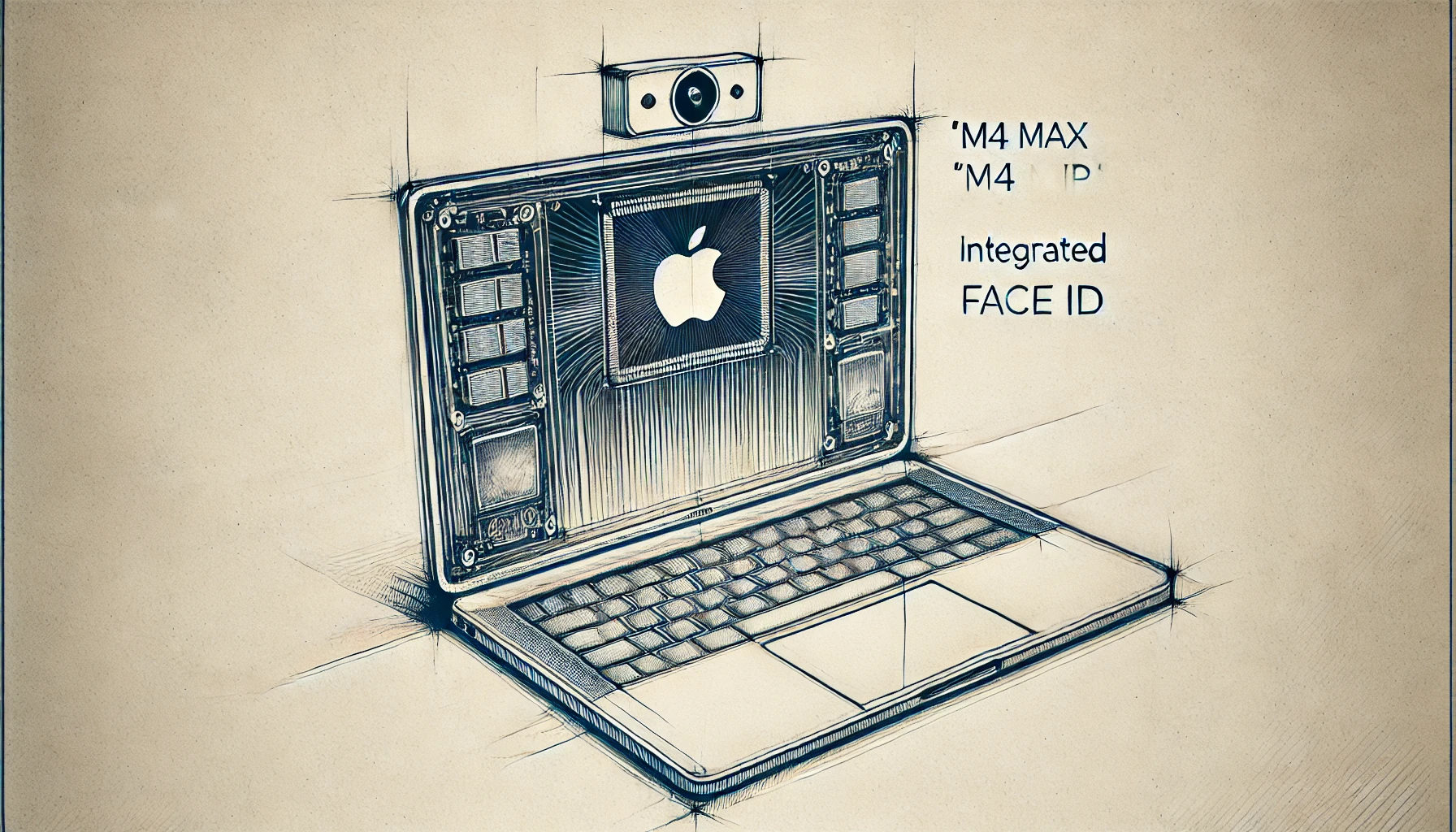Anticipating The MacBook M4 Max And The Arrival Of Face ID In Apple's Laptop Line

Jun 26, 2024
Introduction
Apple's innovation engine has long fueled the tech industry's momentum, setting trends and defining user expectations. The MacBook series, known for its robust performance and sleek design, stands at the forefront of Apple's technological advances. As enthusiasts and professionals alike speculate about future upgrades, two notable advancements are often discussed: the next-generation MacBook processors, potentially the M4 Max, and the integration of Face ID technology.
The Evolution of Apple Silicon
Apple transitioned to its own silicon in 2020 with the introduction of the M1 chip, marking a significant shift away from Intel processors. This move not only enhanced performance and efficiency but also allowed Apple greater control over integration between hardware and software. Following the success of the M1, M2, and their variants, the M4 Max is a highly anticipated continuation of this lineage.
Historically, Apple has favored a roughly biennial cycle for its major chip updates, with iterative improvements released in between. Given that the M2 chip debuted in 2022, a plausible timeline suggests that an M4 Max could be announced by late 2024 to early 2025. This next iteration is expected to push the boundaries in processing power, energy efficiency, and perhaps even AI capabilities, reflecting Apple's ongoing commitment to innovation.
The Potential for Face ID
Face ID, Apple's facial recognition system, has become a staple feature in iPhones and iPads, providing secure and convenient authentication. Its adaptation to the MacBook lineup has been a topic of speculation for several years. Implementing Face ID in MacBooks poses unique challenges, primarily related to the integration within a thinner display framework and the need for a more sophisticated camera system to handle various opening angles.
Despite these challenges, the potential benefits—such as enhanced security and a more streamlined user experience—make it a compelling addition. If Apple continues its pattern of integrating successful features from its mobile devices into MacBooks, Face ID could realistically debut in the next major redesign. This redesign could coincide with the release of the M4 Max chip, aligning major hardware upgrades with significant feature introductions.
Market Implications and User Impact
The introduction of an M4 Max chip and Face ID would reaffirm Apple's leadership in the laptop market, addressing both performance-hungry professionals and security-conscious users. The M4 Max would likely cater to high-demand applications such as professional video editing, 3D modeling, and software development, while Face ID would enhance the appeal of MacBooks in enterprise and education sectors, where security is paramount.
Conclusion
While Apple maintains its typical secrecy regarding future products, the progression of Apple Silicon and the integration of proven technologies like Face ID into new device categories are logical next steps. Whether these innovations will arrive with the next MacBook release remains to be seen, but based on Apple's history and market strategy, their debut in the coming years would not be surprising. Tech enthusiasts and professionals would do well to watch closely, as Apple's moves could set new benchmarks for what users can expect from a premium laptop experience.